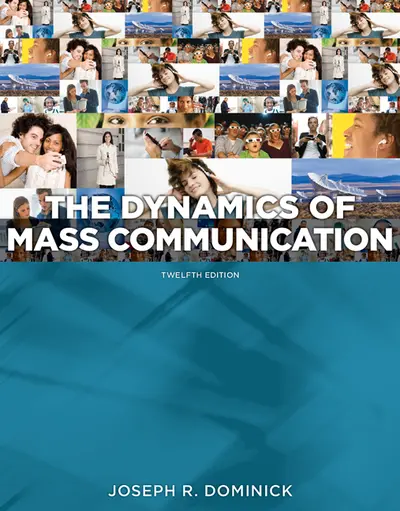My Account Details

ISBN10: 0077649753 | ISBN13: 9780077649753

* The estimated amount of time this product will be on the market is based on a number of factors, including faculty input to instructional design and the prior revision cycle and updates to academic research-which typically results in a revision cycle ranging from every two to four years for this product. Pricing subject to change at any time.
Instructor Information
Quick Actions (Only for Validated Instructor Accounts):
Well-known for its balanced approach to media industries and professions, Dynamics of Mass Communication offers a lively, thorough, and objective introduction for mass communication majors and non-majors alike. Dynamics of Mass Communication takes a comprehensive and balanced look at the changing world of mass media. Social media, ‘apps’ and the new media Goliaths are new and major themes of the 12th edition. Explore how the traditional mass media are dealing with shrinking audiences, evaporating advertising revenue and increased competition from the Internet. The 12th edition brings students up-to-date on the latest developments in the media world including cyber-bullying; new media business models; e-book readers’ affects on the traditional print publishing industry; online video sites such as YouTube and hulu.com.; the decoupling of advertising from media content, and much more.
Part I The Nature and History of Mass Communication
Chapter 1 Communication: Mass and Other Forms
Chapter 2 Perspectives on Mass Communication
Chapter 3 Historical and Cultural Context
Part II Media
Chapter 4 The Internet and Social Media
Chapter 5 Newspapers
Chapter 6 Magazines
Chapter 7 Books
Chapter 8 Radio
Chapter 9 Sound Recording
Chapter 10 Motion Pictures
Chapter 11 Broadcast Television
Chapter 12 Cable, Satellite and Internet Television
Part III Specific Media Professions
Chapter 13 News Gathering and Reporting
Chapter 14 Public RelationsChapter 15 Advertising
Part IV Regulation of the Mass Media
Chapter 16 Formal Controls: Laws, Rules, Regulations.
Chapter 17 Ethics and Other Informal Controls
Part V Impact of the Media
Chapter 18 Social Effects of Mass Communication
Glossary
Photo Credits
Index
Need support? We're here to help - Get real-world support and resources every step of the way.